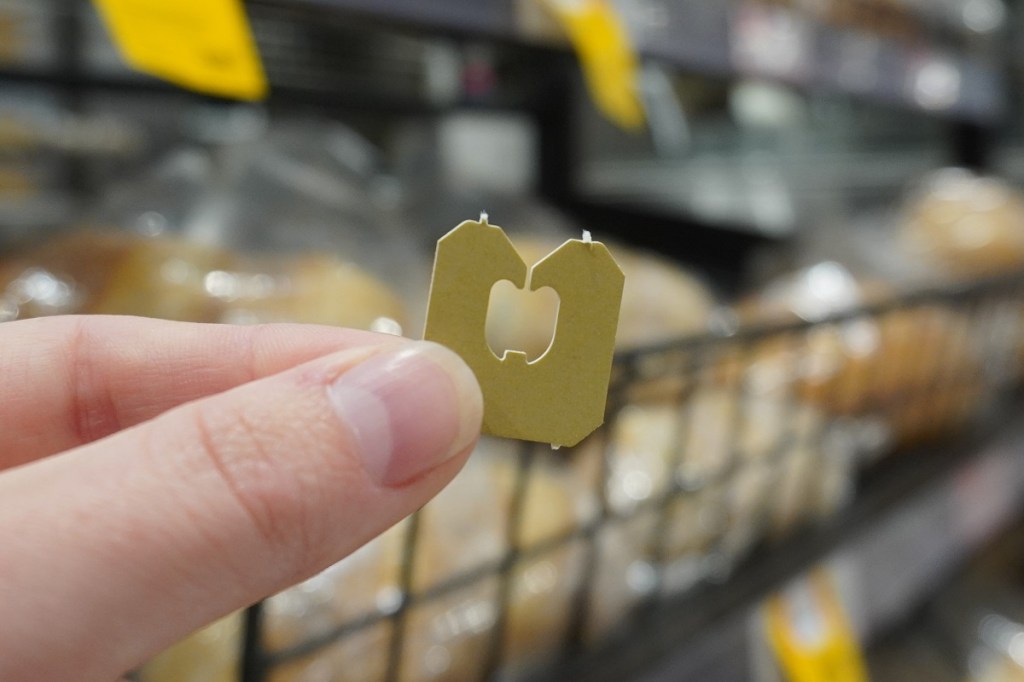Coles is trialling the replacement of plastic bread tags with new a cardboard variety that is made from 100 per cent paper-based recycled content.
The trial, which commenced in June with a view to roll out in 2022, will apply to 254 varieties of Coles Own Brand bread including both in-store baked bread and pre-packaged loaves.
The cardboard tags are recyclable in kerbside recycle bins and once rolled out nationally, they will result in the diversion of around 223 million pieces of plastic or 79 tonnes from landfill each year.
Coles General Manager of Bakery, Deli and Seafood, Andy Mossop, said the initiative is aligned with Coles’ ambition of ‘Together to Zero Waste’, one of the focus areas of its new sustainability strategy.
“At Coles, we are committed to reducing single-use plastic and we want to ensure wherever possible that we work with our suppliers to make our packaging recyclable and made with recycled content,” said Mossop.
“We’re listening to our customers who have told us in a recent survey that reducing waste to landfill and plastic packaging was the number one concern when it comes to environmental issues in retail, with 69 per cent of those surveyed saying it was of high importance to them.
“We are proud that this move towards cardboard bread tags means all components of our Coles Own Brand soft-plastic bread packaging will become recyclable.”
To ensure the cardboard tags are recycled in kerbside recycle bins, customers will need to place the tag securely inside other paper or cardboard products, such as a used envelope or paper bag. This will ensure the small tag doesn’t get lost in the recycling process and end up in landfill
Coles is working together with its bakery partners, including Goodman Fielder on the plastic bread tag removal initiative.
Mick Anderson, Head of Sustainability for Goodman Fielder, said the recyclable bread tags are durable and have undergone rigorous testing and development.
“We have used material which is high-quality, ensuring both strength and flexibility to keep bread bags tied, in line with customer expectations.
“We are proud to partner with Coles on reducing the impacts of both plastic and food waste as part of our shared sustainability vision.”
Coles has also committed to having some of its most popular in-store bakery items made with 100 per cent recycled content in FY22. This is in addition to already being fully recyclable at kerbside.
The change will apply to 60 million pieces of packaging each year on in-store bakery products like cookies, doughnuts, Danishes, and muffins. Packaging will be made from 100 per cent recycled PET, which requires less energy to manufacture per kilogram than virgin PET.
As part of its pledge to make packaging more sustainable, during FY21 Coles has removed 36 million soaker pads from meat trays. This means 36 million soaker pads not being sent to landfill.
Coles Group no longer sells single-use plastic tableware products including cups, plates, bowls, straws, and cutlery. Additionally, in March, Coles announced a joint feasibility study to determine the benefits of a local advanced recycling facility in Victoria. Advanced recycling offers new life to old soft plastic by turning it back into oil that can be used to produce new soft plastic food packaging.
Coles also reaffirmed its commitment to packaging sustainability by joining the Australia, New Zealand, and Pacific Islands Plastics Pact (ANZPAC) as a founding member. ANZPAC is committed to a shared vision of a circular economy for plastic by eliminating unnecessary and problematic plastic packaging, ensuring 100 per cent of plastic packaging is recyclable, reusable or compostable by 2025 and increasing the recycled content used in plastic packaging.
Coles is celebrating 10 years working with food rescue organisation SecondBite and soft plastics recycler REDcycle. Together Coles and SecondBite have helped provide the equivalent of more than 153 million meals to Australians in need and, with REDcycle, collected more than 1.7 billion pieces of soft plastics to be used in furniture, children’s playground equipment, roads and even Coles’ carparks.

